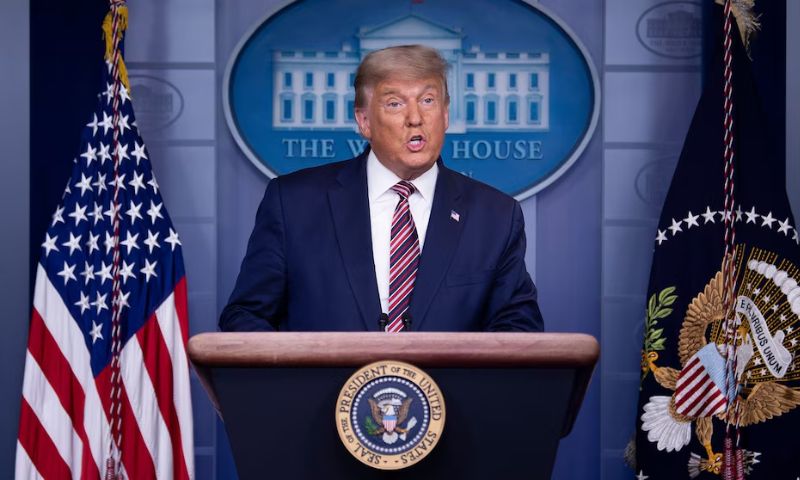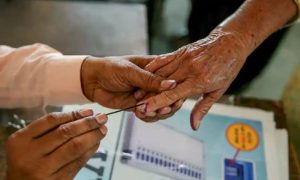WASHINGTON: The US Supreme Court convened on Thursday to hear arguments regarding whether former President Donald Trump should enjoy immunity from criminal prosecution for actions taken during his time in office, a decision with potential ramifications for executive power and Trump’s legal challenges as he eyes another presidential bid.
The outcome of the case could significantly shape the extent of executive authority, as well as impact Trump’s legal standing as he navigates multiple legal battles while considering a return to the White House.
While many constitutional law experts anticipate Trump facing a legal setback, the decision to take up the case has effectively delayed the commencement of Trump’s trial on charges related to alleged efforts to overturn the 2020 election results won by Democrat Joe Biden, possibly indefinitely.
Representing Trump, attorney John Sauer argued before the court that “presidential immunity from criminal prosecution is essential for the functioning of the presidency as we know it,” cautioning that without such protection, sitting presidents could face manipulation and coercion from political opponents.
Trump himself voiced frustration with the judicial proceedings, expressing his desire to attend the Supreme Court hearing but lamenting that the presiding judge in his hush money trial in Manhattan did not permit his attendance. Trump suggested that without immunity, a president’s authority would be reduced to a ceremonial role.
The issue of whether a former president is immune from prosecution presents an unprecedented legal challenge in the United States, with no prior precedent due to the absence of criminal charges against former White House occupants.
Special Counsel Jack Smith filed the election conspiracy case against Trump in August, seeking a March trial start date. However, Trump’s legal team pursued multiple motions to delay the proceedings, including the argument for “absolute immunity” for ex-presidents.
Lower courts dismissed Trump’s immunity claim, asserting that it lacked support from legal precedent or the US Constitution. However, the Supreme Court agreed to review the case in February.
Despite Trump’s hopes for a favorable ruling from the conservative-leaning Supreme Court, legal scholars anticipate a rejection of the argument for blanket immunity. James Sample of Hofstra University and Steven Schwinn of the University of Illinois Chicago both anticipate a decision favoring the prosecution.
Regardless of the court’s ruling, the timeline of the trial remains a crucial factor, with potential implications for Trump’s political ambitions as he faces charges in Washington, Georgia, and Florida related to his actions during and after his presidency.























